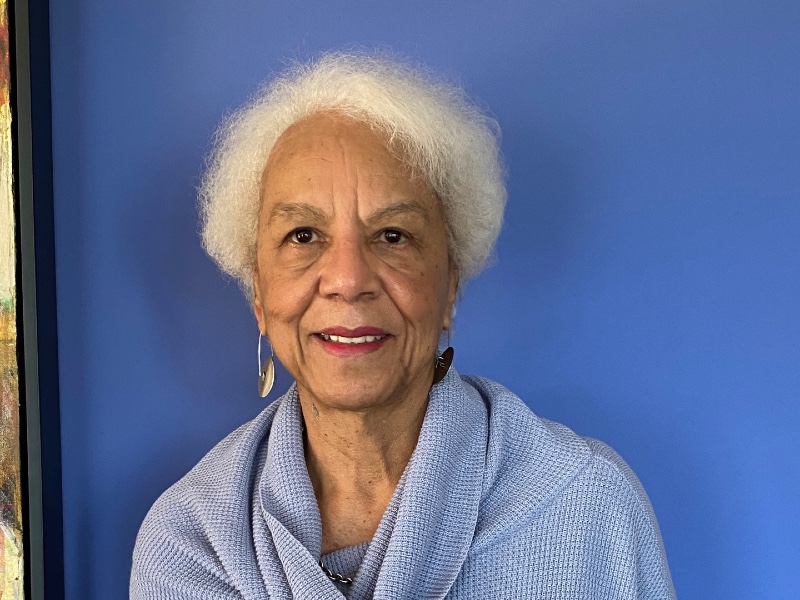On Day 1, Prof. King discusses childhood memories, including spending significant time alone with books and the newspaper during her elementary through high school-age years, and her experiences in the Episcopal Church. Prof. King tells the story of her first memory of racial segregation and discrimination in the healthcare system during a trip to the eye doctor with her grandmother.
Prof. King recounts her choice of Wheaton College for her undergraduate degree in the 1960s, acknowledging the support of her high school physics teacher, who helped her pay for SAT registration and put her in touch with the National Scholarship Service and Fund for Negro Students (now called A Better Chance). She describes her academic education at Wheaton, and various encounters with nuances of class and race that had been obscured in segregated Norfolk. She describes her responsibilities in her first job after college at the US State Department, beginning in 1964, and her decision to apply to and complete a law degree at Harvard Law School in 1969.
Prof. King discusses an opportunity to work on Title IX of the Civil Rights Act of 1964 in a role with the Dept. of Health, Education, and Welfare (in the part of the agency now known as the US Department of Education), and her decision to leave the State Department upon Republican President Richard Nixon’s reelection in 1972. She discusses the United States Public Health Service Syphilis Study, informally referred to as the Tuskegee Syphilis Study. At the end of the first day of this interview, Prof. King names her mother and grandmother as early influences on Prof. King’s identity as a feminist, and talks about the importance of justice considerations in bioethics.
On Day 2, Prof. King discusses her appointment as a commissioner for the National Commission for the Protection of Human Subjects of Biomedical and Behavioral Research (the National Commission). In a discussion about issues raised by research involving prisoners, she identifies the tendency within bioethics to emphasize informed consent instead of justice. She self identifies as “Black, female, and from a low income background.” She discusses her work for the National Institutes of Health on embryo and fetal tissue research, contextualizing this work in light of the 1973 Roe v. Wade Supreme Court decision.
Prof. King reflects on how the field of bioethics has not incorporated concern for racial justice until very recently, making specific reference to the protests following George Floyd’s killing and the Black Lives Matter movement as recent historical influences towards this shift. She notes that she has been asked to speak about racial issues more frequently in recent years.
Prof. King explains the origins of her professional interest in family law, noting her feminist bent in law school as an influence. She discusses the limitations of relying on consent to the exclusion of justice concerns. Prof. King cites her mistrust of the medical system as a Black person to illustrate the need for the inclusion of Black people on bioethics commissions, and the importance of professional historians and sociologists being included in such discussions. She mentions her upcoming 80th birthday.
This interview may be of interest to those wishing to learn more about: history of bioethics in the US; the fields of bioethics, law, and public policy; regional histories of bioethics (Washington DC); the experience of Black women in bioethics, law, and public policy in the United States; interdisciplinary national bioethics commissions; reproductive health advocacy; gender and race discrimination in the medical fields, public health, and academia; feminism within bioethics from the 1960s to 2000s; Harvard Law School in the 1960s; and the future of bioethics
